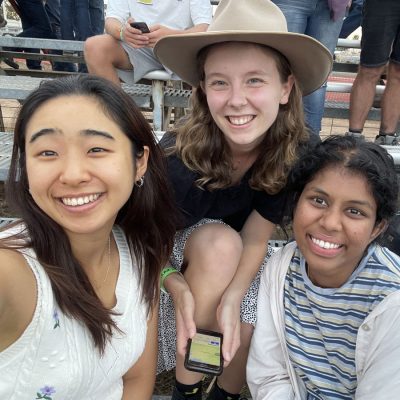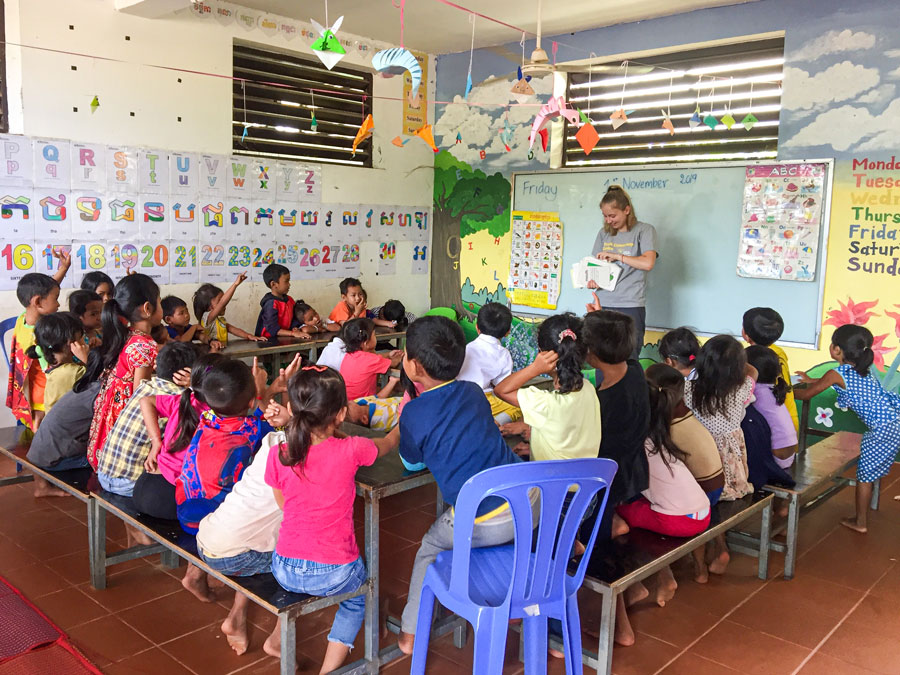A final-year student in a Doctor of Medicine program in Toowoomba having studied a Bachelor of Medicine at Griffith University, Elli’s path to medicine wasn’t just a career choice; it was a calling, ignited by a mixture of curiosity, compassion, and a desire to make a difference.
“I have always had a passion for the sciences and an intellectual curiosity to understand the complexity of the world and the people around me,” said Elli.
“But it was volunteering at an aged care centre in high school that truly sparked my interest in medicine.”
That spark grew into a flame during a transformative work experience placement at the Bundaberg Friendly Society Private Hospital.
Witnessing doctors navigate the delicate balance between delivering life-altering news and providing life-saving treatments left an indelible mark on Elli’s soul.
“I saw first-hand the value, importance, reward, and sacrifice involved in a medical career,” she said.
“As a doctor, every day is different and every day is a chance to develop responsibility, focus, communication, and problem-solving skills which will be valuable for years to come.
“I was inspired to become a doctor so that I can not only help others by improving their quality of life, but also so that I can help myself learn and grow as a person with every challenge thrown at me.”
Navigating the rigours of medical education hasn’t been without its challenges for Elli.
The demanding nature of the curriculum coupled with extracurricular commitments led her to a pivotal realisation during her second year.
“I was trying to juggle too many extra-curricular commitments which was lots of fun, but I was left feeling exhausted before exams,” she said.
“I learnt the value of recognising when I am doing too much and how to prioritise my time effectively.
“I think acknowledging your personal signs of burnout and how to manage it is a valuable skill moving forward as a doctor as well.
“Another challenge I have found is trying not to compare myself to others.
“Medicine is such a broad field and it’s easy to get caught up in what those around you are doing in terms of study and career paths.
“As I have found, everyone’s journey as a doctor is different and we all have different skills we can bring to our respective fields.”
Yet, amidst the challenges, Elli found her true calling: general practice.
Elli believes that general practice is one of those areas in medicine that everyone is exposed to growing up but then when it comes to choosing a career path, most people forget about.
“I love the idea of a career in general practice as it has lots of variety and the ability to help patients with a holistic approach,” she said.
“General practice emphasises that medicine is both an art and a science and gives the opportunity to relate to and follow up with patients.
“It is such a privilege to join patients on their health journey and I think that is the aspect of general practice that is most rewarding, connecting with and making a lasting impact in patients’ lives.”
Throughout her journey, Elli found unwavering support from organisations such as the General Practice Students Network (GPSN).
“I remember attending trivia nights with GPSN in my first year,” she recalls.
“Having the opportunity to network with other students interested in general practice and speaking with healthcare professionals helped me to appreciate the value and variety involved in general practice.”
Reflecting on a poignant moment in her medical journey, Elli recounts an encounter that reaffirmed her commitment to medicine.
“In a packed rural ED, I had the privilege of sitting with a scared 16-year-old struggling with suicidal ideation,” she said.
“She was scared, overwhelmed and had nowhere else to go.
“As a medical student, I was fortunate enough to have the time to sit with the patient, discuss her mental health and be there for her.
“A few hours later the patient told me I was the first person to listen to her for years and she gave me a hug.
“In that moment I felt really proud of the difference we could make to people’s lives as doctors, and it fuelled my passion to provide healthcare to rural communities and those who are disadvantaged.”
Elli has one final tip for aspiring medical students – explore the possibilities of rural medicine.
“Having grown up in the city all my life, I hadn’t really considered a career in rural medicine,” she said.
“I would highly encourage you if you are passionate about general health to explore the difference you can make in rural communities.
“Whether that be through your rural health club or completing a rural placement, rural medicine opens up so many possibilities in terms of career opportunities and is a great environment to grow your skills in general practice.”
Looking ahead, Elli envisions herself as a rural generalist, serving her community with dedication and compassion.
“In 10 years’ time, I hope to be a fully qualified rural generalist having an established practice and advanced training under my belt, and potentially specialising in women’s and mental health,” she shares.
“But more than that, I hope that I have gained confidence and clinical knowledge that will aid me to best serve my community and make genuine connections with my patients.
“I also hope that I can be a mentor for the junior doctors and help them through the overwhelming decisions of medical school.
“At the end of the day, the reason we are in medicine is to help people and I am so excited to see the longitudinal difference we can make in a career in general practice.”
For Elli, the essence of a successful GP lies in possessing a blend of resilience, compassion, communication, and curiosity – four pillars of patient-centered care.
“General practice is broad, and I don’t think I quite appreciated how broad until I saw specialties in fourth year and realised how much they all rely on GPs to help manage their patient and for referrals,” she said.
“As a GP, you need adequate communication skills to build rapport and trust with your patient to get the full clinical picture of their health.
“This, combined with intellectual curiosity and compassion to understand their illness and how it affects their life, are character traits that help GPs make the most meaningful impact.”






